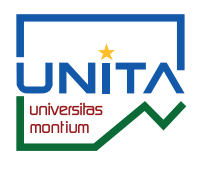Creating UNITA inter-territorial interfaces for innovation
As key agents of the quadruple helix of innovation, all universities have mechanisms to interact with the other agents of their ecosystem (public institutions, industries, and the civil society). The purpose of this Task it to create a strong connection among these structures or interfaces throughout the UNITA alliance, pulling together knowledge and resources to improve and widen the service given to all UNITA economic and social environments, in the context of their regional smart specialization strategy.
Building on the activities and results achieved under the Re-UNITA project, this task will seek to implement a genuine network dedicated to innovation and technology transfer within the UNITA Alliance.
The Re-UNITA project aims to enable UNITA universities to share the resources of their territories and their ecosystems.
In line with this initial objective, a number of actions are being carried out for and with our universities' private partners to encourage collaboration between our universities and the non-academic sector.
Multipolar Virtual Science-Innovation Park
A database (UNITA Contact Points Database) has been developed, with the cooperation of all partners, ending with the designation of 13 people as contact points.
A best practices report is available (Cooperation between UNITA universities and Innovation Ecosystem), where we promote best practices among the partners within the Re-UNITA project to demonstrate how they are acting, with their ecosystem, to build up appropriate answers to the sustainable development goals established by the United Nations states' members.
The main objective of this study is to map the best practices of cooperation between actors of the innovation ecosystem, inside the UNITA consortium. The six partners of the consortium conducted interviews and collected a set of 30 best practices, detailed in the report.
Moreover, a Database of Innovation and Transfer was also produced, with Information gathered on the 6 Universities’ Structures of Innovation and Transfer, their services, researchers/staff and their partners (national/international), this database gathered more than 700 granted patents from the 6 RE-UNITA partners.
Empowering R&ID based entrepreneurship
Re-UNITA spin- off forums
Every year, the UNITA Alliance holds a spin-off forum to bring together innovation players from our universities (spin-offs, start-ups, incubators, accelerators, etc.).
These events encourage networking and the promotion of our ecosystems, and bring together all the members of our university communities who are keen to learn from the best practices of other UNITA universities.
Two editions were organized:
Autumn entrepreneurship school
Every year, within Re-UNITA project, these events are aiming at providing specific and professional training in entrepreneurship. Under the label "From Research to Market" attendees receive key information on how to valorise their research, how to manage the intellectual property of their research results, which tools are available in their universities to do so and learn about the problems of the early stages of company formation.
Two editions have been organized:
Re-UNITA Proof of concept
The RE-UNITA PROOF OF CONCEPT PROGRAM intends to share policies and practices related to research and innovation. In that sense, through a Proof of Concept (PoC) what is intended is to demonstrate or show a prototype of a concept, idea or technology in order to validate the feasibility and potential success of a project.
Through the PoC project, a (typically) small-scale project aims to prove the viability of the subsequent idea or technology, and through that, gather feedback from stakeholders. As of that, the RE-UNITA PROOF OF CONCEPT PROGRAM is providing seed funding for a small proof of concept project among those presented by teams comprised of at least two UNITA partners. The objective of this call is to empower R&I based entrepreneurship in the UNITA community and to contribute to the cooperation between members of the different Universities of RE-UNITA project.
UNITA Open Innovation Community
According to Chesbrough, “open innovation is a more distributed, more participatory, and more decentralized approach to innovation.” This approach is a great way to access external knowledge and to find new ways of doing things.
Re-UNITA Project has the objective to disseminate this concept among our community, through the “Open Innovation Prizes”, organized each year.
These prizes are awarding researchers demonstrating outstanding practices in favour of open innovation and contributing to the scientific excellence of the UNITA Alliance.
